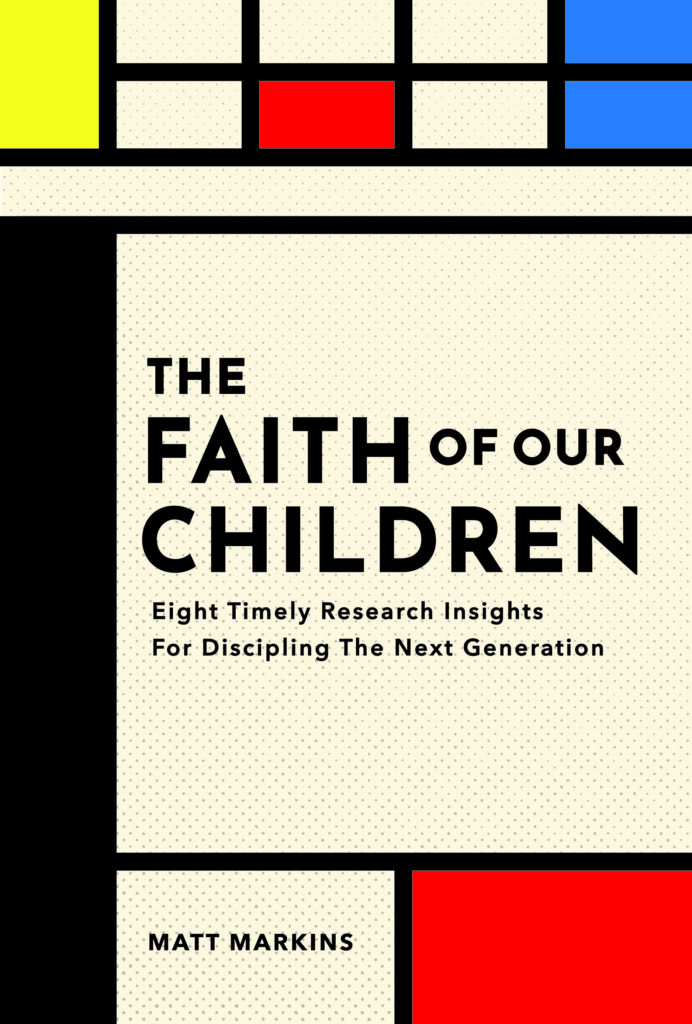Systems
The Norms, Processes, Infrastructure and Culture We Depend on to Form the Faith of Our Children
Chapter 5 – Time
The Way Children’s Ministry Leaders Spend our Time Does Not Match Our Desired Objectives
Discussion Questions
- What distinct role does the church (pastors, kids ministry leaders, volunteers, etc.) have in discipling children in the church community? What distinct role do parents (and caregivers) have in discipling the children within their care? Are these roles and responsibilities clear within your church community?
- Does your church community have the awareness that most people come to Christ between the ages of 4–14? Does your church community have the awareness that worldview is largely shaped in most people by the age of 13?
- What’s your baseline? How do you spend your time each week? What takes up the majority of your time?
- Just like you would prioritize your tithe (giving) first or your retirement investing first, what would it look like to schedule out relational equipping on your calendar? Weekly? Monthly? Quarterly? Annually? How might this help you and your church to cast vision with parents and to equip them to disciple their kids?
- When you do (or will) meet with parents, what are the best formats or methodologies for relational equipping? Casual one-on-one visits over coffee? Small group informal discussions? Formal trainings? Big events? Or some combination?
Chapter 6 - Fun
When It comes to Having Fun, We are Outperforming Our Own Expectations
The Faith of our Children Chapter 6 Video
Discussion Questions
- Is “fun” a stated value in your children’s ministry? Or is it an assumed value in your ministry? To what degree do you and your team value fun?
- Specifically, what role or objective does fun play in your children’s ministry? How does fun help you form the faith of the children in your home or ministry?
- Using the “fun fire” analogy, what logs do you use to fuel fun? (E.g. games, media, videos, etc.) How do you believe these methods are contributing to the faith formation of the children in your care?
- How would your team answer this question, “Of all the logs in the fun fire, have we put too many goofy and entertaining logs in the fun fire?”In a world of excess entertainment for children, what do you think your children need most in terms of engagement from adults in your church community?
- In a world of excess entertainment for children, what do you think your children need most in terms of engagement from adults in your church community?
Chapter 7 - Parents
Parents Are the Primary Influence Over Their Children but are Less Engaged in Discipling Them
The Faith of our Children Chapter 7 Video
Discussion Questions
- What’s the connection between “time” and “parents”? Discuss this as a team/group.
- What one change can we make in our schedule to maximize relational investment in equipping and training parents for transformational impact?
Chapter 8 - Culture
Sometimes We Feel Like We’re Losing Because of Dominant Cultural Forces
The Faith of our Children Chapter 8 Video
Discussion Questions
- Do you think parents and churches should have a clear grasp on the primary areas to focus on in order to cultivate lasting faith in children?
- When it comes to the faith cultivation of children in your community or home, what metrics do you currently track, assess, and evaluate? Do you think you are paying attention to the most important metrics?
- When you think about Belong (highly relational), Believe (deeply scriptural), and Become (truly experiential), how do those key areas of faith formation resonate with you? Do they ring true to your own study and experience?
- By using the 3B Mind Map exercise, what are the top 3–5 ideas you came up with for each B? How could you begin to use those ideas to create a new set of metrics to shape the faith of the kids in your community?
Don’t forget about the mindmaps at the back of chapter 8!
